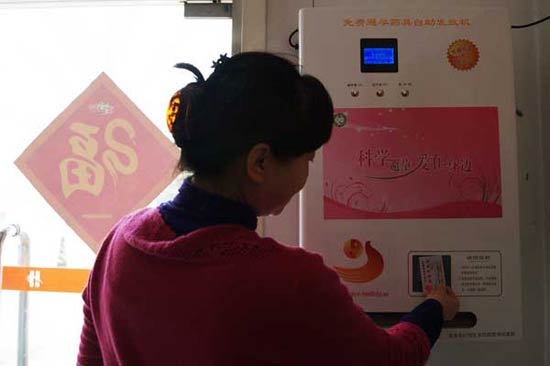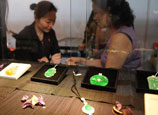
 |
| Beijing residents can use their second-generation ID cards at automatic dispensers across the capital to receive free contraceptives. Wei Xiaohao / China daily |
Card-operated condom dispensers to reduce abortions, say authorities
Yuan Fengkai, 23, often goes to a nearby Carrefour beyond the northeast Fourth Ring Road in Beijing, not only for the groceries, but also the free condoms.
At an automatic contraceptive dispenser attached to a wall, he selects a button, presses his ID card against the dispenser and a box of condoms drops down, free. The whole process takes less than a minute.
"They're not bad, although the package design looks a bit outdated compared with those on sale," said the Henan native, who moved in with his girlfriend a few months ago.
The dispenser saves him money, he said, but also the embarrassment of buying condoms in a shop.
He said his plan once went awry. "I was very embarrassed because the machine kept dropping condoms and I had to unplug it to make it stop," he said.
Yuan is one of more than 228 million youths aged between 15 and 24 years who have benefited from the free distribution of contraceptives in recent years, according to the National Population Census.
"The goal is to prevent unwanted pregnancies, particularly among the unmarried, and to improve reproductive health in general," said Lu Jiehua, a professor of social demographics at Peking University, ahead of World Population Day, which falls on Thursday.
This year's World Population Day focuses on adolescent pregnancy.
Statistics from the National Health and Family Planning Commission show that the government spent 2.47 billion yuan ($402.5 million) on distributing contraceptives during the course of China's 11th Five Year Plan (2006-10).
"That's actually not enough because we are now looking at unmarried youths as new targets," he said.

















 Wild Siberian tiger kills cattle in NE China
Wild Siberian tiger kills cattle in NE China


![]()
